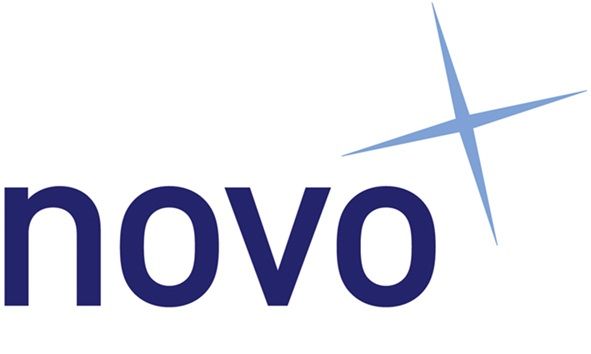Why Project Management for Small Business Is a Game-Changer

Many small business owners find project management an intimidating term. It can sound overly technical or unnecessary, especially when you are already juggling countless tasks. However, effective project management for small business is now essential. It is no longer reserved for large corporations.
In 2025, project management has undergone significant evolution. It is more accessible than ever, with flexible and user-friendly tools that help small business owners stay on track, meet goals, and reduce stress. Whether you are managing client work, launching a new product, or expanding your team, a clear project management system can help you succeed more efficiently and with less pressure.
This article examines why project management is crucial for small business, the essential skills and tools required, and how it can enhance productivity, lower costs, and foster sustainable growth.
Streamline Your Operations with the Right Tools
Choosing the right software tools is a critical step in this process. Consider the myriad ways to pick the right Microsoft 365 Plan for your business, for instance. The right plan provides you with a robust project management system. It also integrates various productivity tools, including email, spreadsheets, and collaborative platforms. This amalgamation can bring a seamless experience. It can centralise your operations and provide valuable insights. Ultimately, it can significantly contribute to the overall efficiency and growth of your business.
Using an integrated suite helps centralise operations, reduce duplication, and enable better tracking of your progress without needing a large team or technical setup.
Key Skills to Get Started
You do not need formal project management training to make it work in your business. The most important skills include:
- Prioritisation – Understanding what to focus on first
- Time management – Setting and meeting deadlines
- Communication – Keeping your team informed
- Resource planning – Allocating the right work to the right people
- Flexibility – Adjusting when circumstances change
Most project management tools are designed to help you build these habits gradually and intuitively.
Why It Is Cost-Effective for Small Businesses
Many business owners believe project management software is expensive. However, there are free or low-cost options that work well for small teams. The real return on investment comes from avoiding wasted time, missed deadlines and duplicated efforts.
You can start with a project dashboard template to gain visibility across your tasks, timelines, budgets and deliverables.
10 Ways Project Management for Small Business Delivers Real Results
- Assign the Right People to the Right Jobs
Prioritising projects ensures you assign tasks effectively. You can also track progress using tools like the best timecard app for construction, which supports real-time monitoring and resource planning. This helps ensure that materials and labour are available when needed.
- Plan and Budget More Accurately
Project estimates reduce guesswork and give you more control over time and costs. Accurate planning also improves communication across departments and supports better decision-making.
- Encourage Collaboration and Shared Ownership
Clear project plans help teams understand how their work contributes to shared outcomes. Even if your team works remotely, project tools support easy file sharing, communication and scheduling.
- Make the Most of Your Team’s Skills
Resource planning helps you identify who is available, who is overloaded and where skills can be better utilised. This improves morale and avoids burnout.
- Manage Time Efficiently
Defined timelines ensure team members stay on track. Knowing how long each task should take helps prevent unnecessary delays and boosts productivity and efficiency.
- Schedule Resources with Confidence
Scheduling before the project starts helps you see where adjustments are needed. You can reassign tasks or shift deadlines without causing confusion or missed deliverables.
- Improve Internal Communication
If you do not yet have a business website, this is a good time to start. Here is a review of website builders that can help. Tools like collaborative platforms and websites reduce communication breakdowns and improve teamwork across departments.
- Stay on Top of Deliverables and Deadlines
Project deliverables are the measurable results that demonstrate progress. Tracking them keeps your business aligned with client expectations and internal goals.
- Keep Everyone Focused
A visible project plan helps your team stay aligned with the overall goals. It reduces time spent on low-priority tasks and increases overall productivity.
- Increase Accountability Across the Business
When timelines and responsibilities are clear, team members know exactly what is expected. This prevents confusion and supports a culture of ownership and follow-through.
How to Introduce Project Management into Your Workflow
You do not have to overhaul everything overnight. Start small by:
- Listing your top three priorities for the month.
- Selecting a free or low-cost project management tool.
- Creating task lists with clear deadlines and ownership.
- Reviewing your dashboard once a week.
As you build confidence, consider adding team check-ins, project reviews and performance tracking to your workflow.
Small Businesses Deserve Big Tools
Project management for small business is not just useful—it is transformative. It helps you reduce chaos, streamline tasks and increase output. Whether you are a solo entrepreneur or leading a growing team, a basic project management system can help you reach your goals faster and with less stress.
By adopting simple tools and building key project skills, you can grow your business with clarity, efficiency and long-term vision.
Originally published on People Development Magazine, https://peopledevelopmentmagazine.com/2025/06/24/project-management-for-small-business












